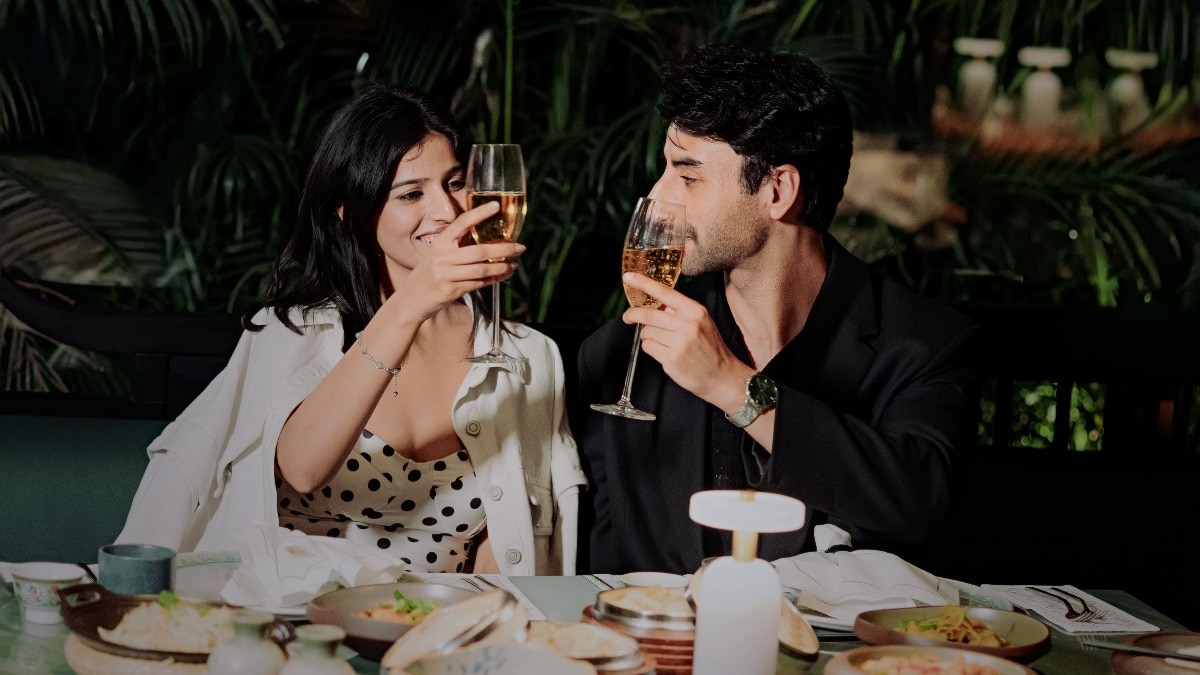
- Home
- Lifestyle
Ayurveda is India’s greatest gift to the world


With how popular Ayurveda is across continents today, it’s easy to forget where it came from. It isn’t surprising that the medicinal system, which originated in India, has now found top shelf placement in gold-lidded jars on beauty counters or is touted to cure every ache with herbal massages at luxury spas. But how did Ayurveda get this far and more importantly, where did it all begin? HELLO! dives into the history of India's most famous export, its journey through the years and its relevance even in the modern era.

Ayurveda: Where it all began
The origin of Ayurveda dates back to centuries. During the Vedic period, archaeological evidence has shown Indus Valley civilians to have turned to herbal remedies to cure their ills. The Atharvaveda from 1200 BCE is the earliest documentation of Ayurvedic principles. In the centuries that followed, Ayurveda build a strong framework for its practice with a firm set of principles; crediting Dhanvantari and Atreya as its key figureheads during its formation. Ayurvedic medicine flourished during the nation’s medieval period until 1500CE. Under the rule of the Gupta dynasty, scholarships encouraged its study and educational programs at Nalanda and Takshashila universities further led to its awareness. Although the colonial era that followed clamped down on Ayurvedic practice due to British rule in India, the post-Independence era in the country witnessed its boom. Since then, the Government of India has recognised Ayurveda as an official healthcare strategy and Ayurvedic-specialised universities now exist for detailed study of the practice.

The pillars of Ayurveda
In the medicinal practice of Ayurveda, the dosha or building blocks of the body and mind affect one’s physical, mental and emotional health. Divided into Vata, Pitta, and Kapha, which are associated with the elements of air, fire and earth respectively; an individual’s combination of doshas is called Prakriti and the harmony of these doshas within the body leads to optimal health. Dr Milind Salunke, Director of Wellness at Swastik Wellbeing Sanctuary, Pune, shares his expertise, saying, “As per Ayurvedic science, one must eat food and drink water as per their metabolic fire; and as every prakriti has different metabolic fires so one rule doesn’t apply for everybody.”
The relevance of Ayurveda today
On its relevance even in the modern age, Dr. Milind adds, "Ayurveda is still relevant in today's day and age. It's a very old vedic science that was invented thousands of years ago and till date, it is still existing with results. This is a science that teaches us how to live. Today, the world is facing many modern issues and when we work on those with Ayurvedic principles, we are getting results. This itself proves that the science is still relevant in today's age. The modern world is completely affected by lifestyle diseases; all of which can be reversed with it".
Demystifying the myths associated with Ayurveda
As a growing system of alternative medicine in a world when traditional Western medicine runs deep, Ayurveda still faces many misconceptions. Dr. Milind weighs in on these myths, saying, “If a person doesn't know their prakriti; if they are acidic and they take carom seeds and ginger, it is further going to aggravate their acid or pitta levels in the system. It’s important for these myths to be dealt with. For example, when one is making smoothies, they combine cream and milk, which are opposing food combinations as per Ayurveda. So following the right information which is scientifically provided by Ayurvedic science is important.”

(Also Read: Our forefathers were always sustainable, they just didn’t know it yet. Now, the world is following suit)
Taking Ayurveda to the world
India has gifted the world with what might be its greatest export; Ayurveda. Its neighbouring South Asian countries, like Nepal and Sri Lanka, are supported by state-run Ayurvedic hospitals. Tourist-friendly spots like Bali and Thailand, world-famous for their take on spirituality and a renewed lifestyle, now include Ayurveda in their spa treatments and retreat menus. Across Europe and North America, interest in Eastern medicine has piqued, leading to popularity of certified practitioners and wellness clinics dedicated to Ayurveda.
Bollywood celebrities from Kareena Kapoor to Shilpa Shetty to Akshay Kumar have been outspoken about the impact of Ayurveda in their lifestyles, with Mira Kapoor calling it “her way of life”. Even in Hollywood, fans of the practice prevail in the celebrity sphere. Supermodel Christy Turlington practises yoga and has turned to Ayurveda, which she calls “its sister philosophy” to manage stress and cope with challenges. Meghan Markle was under the care of an Ayurvedic doctor when pregnant, who helped the Duchess of Sussex see "food as medicine". Gwyneth Paltrow, a wellness mogul in her own right with her lifestyle brand, Goop, practises oil-pulling and has been outspoken about her love for custom-designed Panchakarma treatments which she opts for at Los Angeles’ Surya Spa.
From ashwagandha-infused sleep teas going viral on social media to dosha-specific treatments at wellness retreats, Ayurveda is in places you may least expect and it’s only reaching further. What is clear is that the deeply-rooted Indian practice is steadily helping the world to feel better; mentally, physically and emotionally; one pranayama at a time.
(Also Read: Reset, reflect and rejuvenate at these 7 wellness retreats in India)



